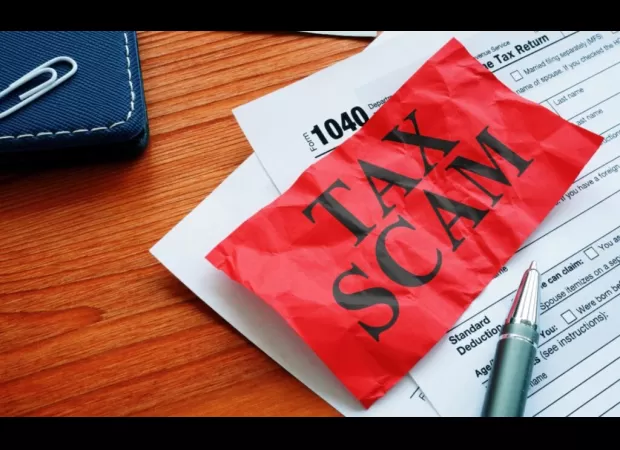IRS cautions about a recent scam targeting taxpayers and urging them to buy clean energy tax credits.
IRS head says criminals are misusing tax laws.

Attention all taxpayers! The Internal Revenue Service wants to make you aware of a new scam that is circulating. This sneaky scheme involves individuals being tricked into purchasing clean energy tax credits. These scammers are targeting taxpayers who have recently filed a Form 1040, which is commonly used to determine tax refunds or owed amounts. The IRS has identified these fraudsters as "unscrupulous tax return preparers" who are falsely misleading people about the regulations surrounding clean energy credits.
Commissioner Danny Werfel has spoken out about this issue, stating, "This is yet another example of scammers trying to take advantage of the complexity of tax laws to lure people into claiming credits that they are not eligible for." He encourages taxpayers to be cautious of promoters promoting dubious credits, such as clean energy, and to seek guidance from a reputable tax professional before attempting to claim any complicated credits.
It is important to note that individuals who improperly claim these credits may be held responsible for repaying the exaggerated amount, along with interest and penalties. The IRS clarifies that these tax credits are only available for purchase to offset income tax from passive activities, such as rental properties or limited partnerships. The average taxpayer does not typically fall into this category of passive income tax liability. If you are approached about purchasing these credits, it is best to consult with a tax professional.
There are various ways to spot potential scams, including phishing and smishing attempts, where scammers send unsolicited emails or text messages pretending to be the IRS in hopes of obtaining personal information. Social media scams and intimidating phone calls are also commonly used by fraudsters to target individuals. This clean energy credit scam is just one of many that have been circulating, including previous ones involving the Fuel Tax Credit, Sick and Family Leave Credit, and household employment taxes. In fact, Forbes recently released a list of the 12 most common tax scams of this year.
Other scams to be aware of include the misuse of trust, where taxpayers are advised to transfer assets into trusts, such as charitable remainder annuity trusts, with false promises of reducing taxable income or increasing deductions. Abusive Tax Shelter scams also exist, where scammers offer untrue "tax strategies" that claim to provide tax benefits. Additionally, there are baseless tax arguments that urge taxpayers to make pointless claims in order to avoid paying taxes. The IRS strongly advises taxpayers to protect themselves by verifying information on their official website.
In conclusion, the IRS wants to remind taxpayers to stay vigilant and be cautious of potential scams, especially those involving clean energy tax credits. Remember to always seek guidance from a reputable tax professional and to verify information with the IRS on their official website. Let's work together to protect ourselves and our finances from these deceitful schemes.






